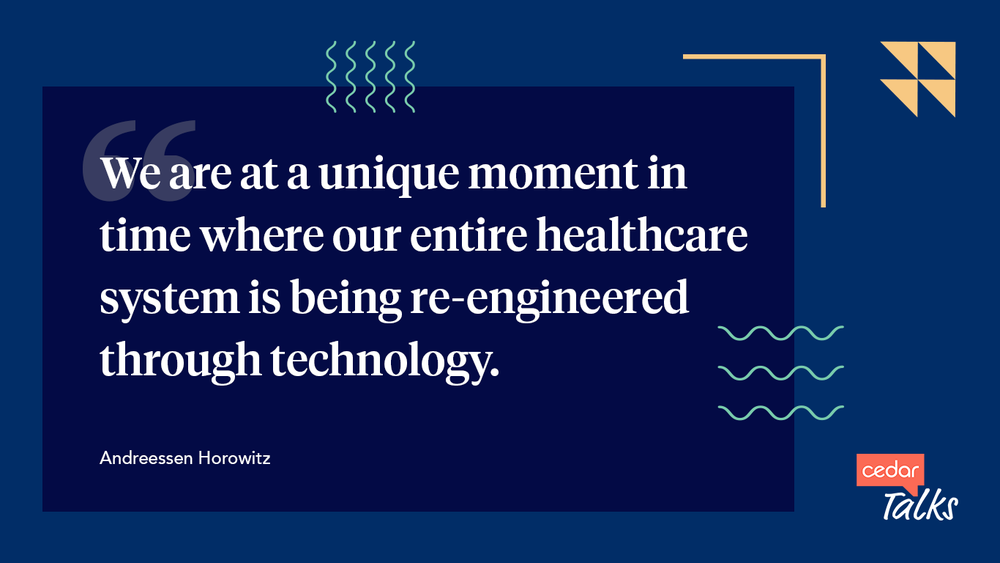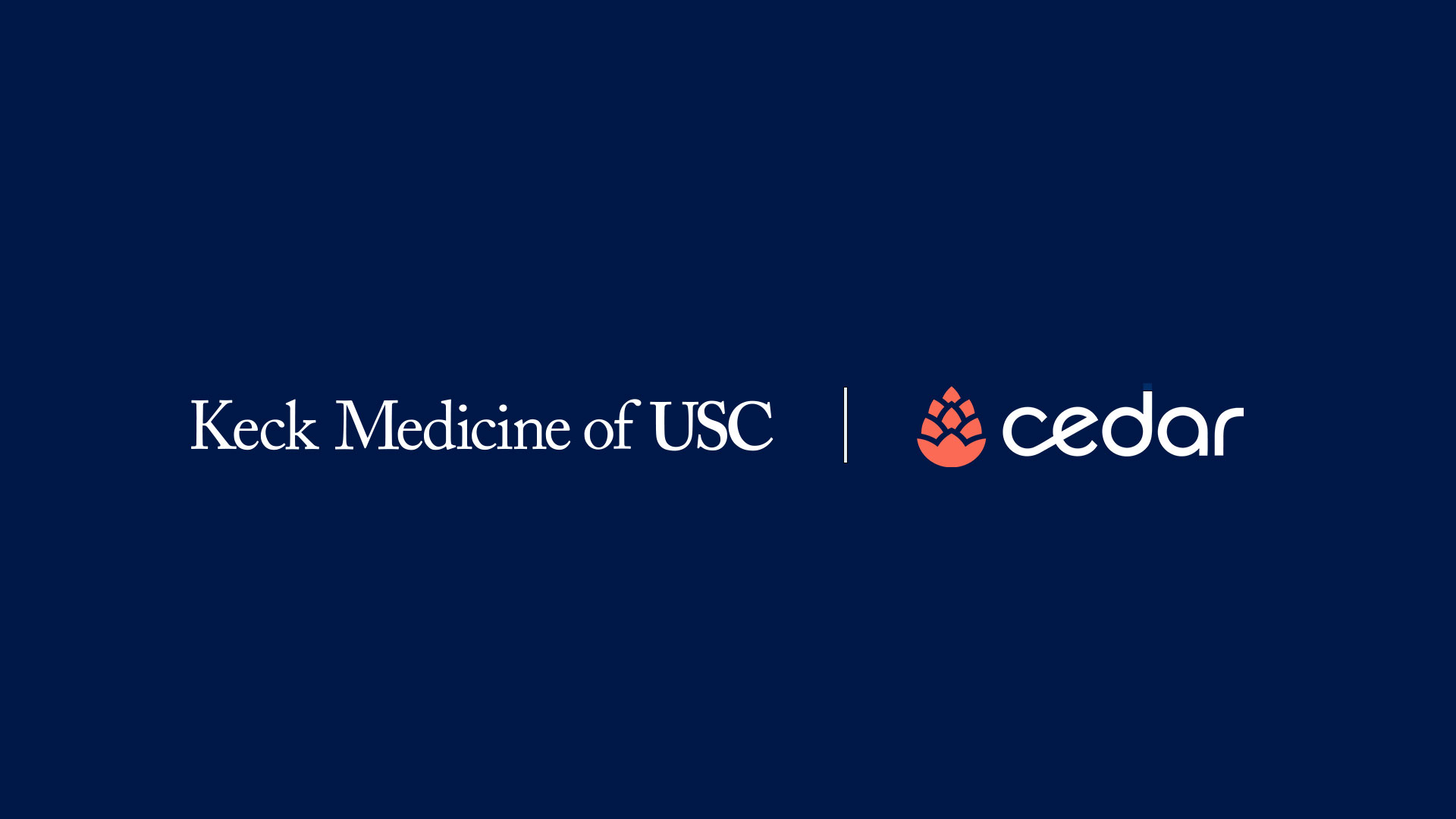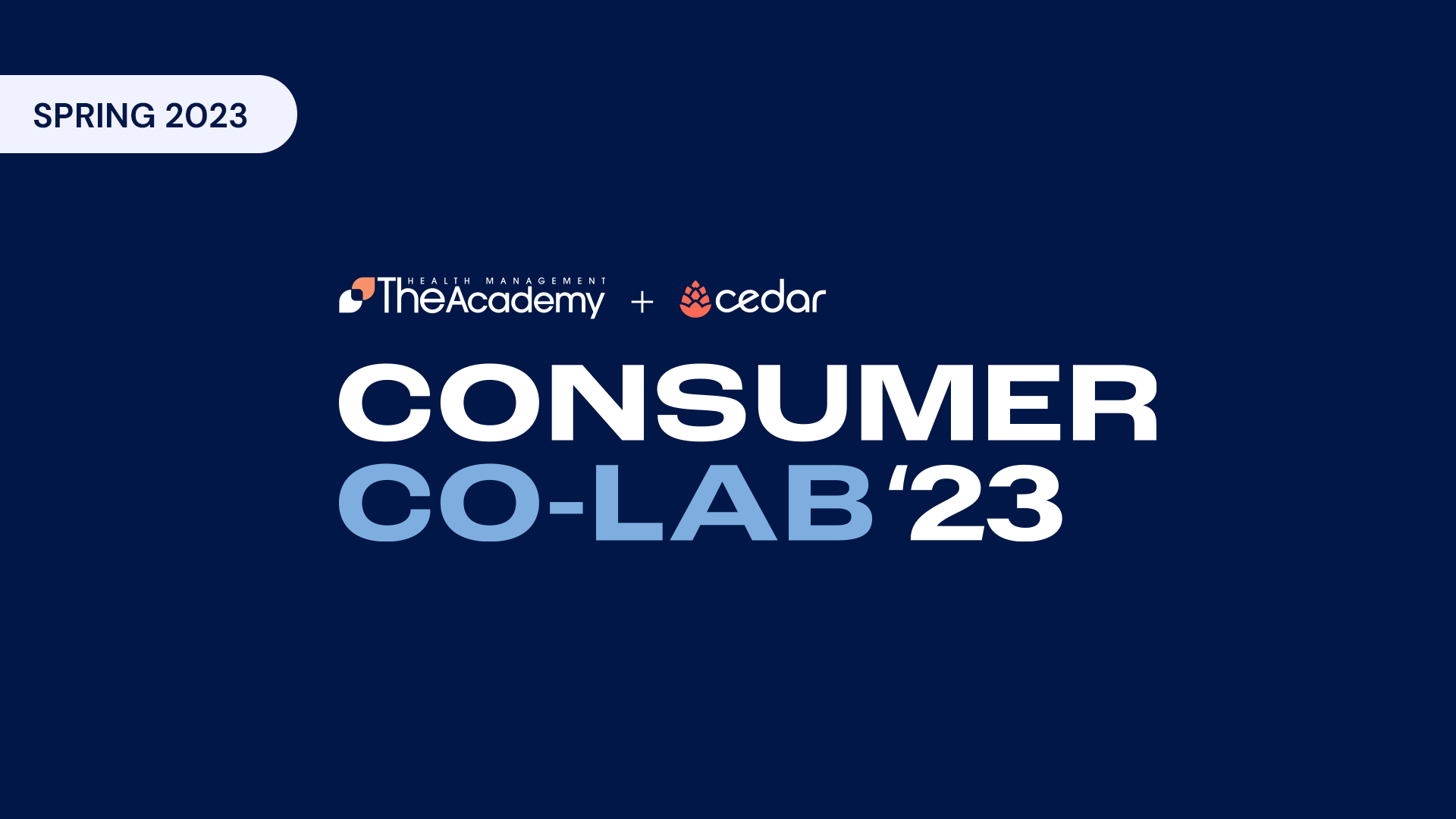Andreessen Horowitz (or a16z) is one of the world’s most successful venture capital firms, known for early investments in world renowned tech companies like Facebook, Slack and Airbnb.
Co-founder and General Partner Marc Andreessen is an innovator, creator, and one of the few people on the planet to establish multiple billion-dollar companies, and Scott Kupor is the firm’s managing partner responsible for all operational aspects of running the firm.
In a recent edition of Cedar Talks, Marc and Scott shared an up-close look at their perspective on investing at the intersection of biology and computer science. Highlights are included below.
Andreessen Horowitz’s Beginnings
Andreessen and Kupor started their careers in all but diametrically opposed backgrounds: Kupor was an attorney and investment banker while Andreessen started out as a software developer writing code before meeting Jim Clark and starting the game-changing computer services company Netscape.
After a mutual friend’s introduction, Kupor joined Andreessen’s Sunnyvale-based Loudcloud (which later became Opsware) and worked with the team for several years until it was sold to Hewlett-Packard in 2007 as part of a $1.6 billion acquisition.
Shortly thereafter, Ben Horowitz and Andreessen formed a16z and brought Kupor on board, starting one of the most successful partnerships in Silicon Valley venture capital history.
“For me, [the change] was a segue from building technology by hand myself — the guy sweating the details — to building companies around the tech. I knew everything we were building but had to start from scratch,” Andreessen said.
a16z’s investment thesis and approach to biotechnology
“When we started in 2009, the assumption was you specialize in IT or you specialize in biotech and we ran under that principle for the first five years,” Andreessen said. “But we started getting these obviously brilliant entrepreneurs walking in the door…[with] these incredible ideas that I would describe as being hybrid IT and biotech.”
Andreessen reflects on the initial hybrid pitches and how the a16z partners “would sit and listen to pitches with all these complex biological terms we didn’t understand and every once in a while, they would say ‘machine learning,’ so we had a sense that there was something new and different with this happening.”
The partners sought the advice of Stanford professor Vijay Pande who explained how science and technology was changing, ushering in an era of engineered biology in which everything from drug discovery all the way through to delivery models and the economics of healthcare would be transformed by software.
The problem, Pande explained, was that traditional “biotech” venture capital firms didn’t know how to capitalize because they didn’t have people deeply rooted in building technology businesses. And the technology venture capital firms didn’t know how to capitalize because they didn’t have VCs with a background in life biology – you needed people with backgrounds in business building at the intersection of life sciences and software.
“We said [to Pande] that sounds great—how would you like to come join us and run [our first bio fund]? So he built our practice,” Andreessen said.
Why they’re betting on the synergy of biology and software
According to Kupor, the convergence of biology and software offers a massive opportunity to fundamentally transform healthcare, and the need to rapidly develop a COVID-19 vaccine has accelerated the process.
“What’s different this time is this integration of engineering and biology […] has two massive implications,” Kupor explained. “You can de-risk the actual scientific development process by bringing engineering principles and repeatability into the process. If you think about it, at biopharma companies, an enormous risk is going through all these biological gates. But if you can use computer science modeling and bioinformatics to actually reduce the failure rates, it has a dramatic impact on the time to market and likelihood of getting a product to market.”
The second is the development of scalable platforms that may be able to produce multiple drugs.
“That’s what’s so exciting about the vaccine work we’re seeing right now,” he said. “Many of these companies had developed these platforms and we didn’t know yet whether they were generalizable to broad cross sections of disease, but it certainly seems like that’s the case. A lot of what we do on the biopharma side are things where they’re investing in platforms so that hopefully they don’t just become single drug companies…It’s very different than what you might have considered healthcare IT 10 years ago where you were selling various units of software into organizations as opposed to really becoming part of the runtime.”
Cedar Talks is a thought leadership series focused on highlighting experienced entrepreneurs, tech innovators and healthcare leaders who are solving important problems by challenging the status quo. Recent Cedar Talks have included former CEO and co-founder of Instagram Kevin Systrom, PatientPing founder Jay Desai, One Medical founder Tom Lee and Kyruus co-founder Julie Yoo
If you’d like to be notified of future Cedar Talks, click here to join the mailing list.



